pewag looks back on centuries of experience in the manufacturing of chains and components. With the first documentary mention dating back to 1479 as a blacksmith in Brückl, the company evolved over the centuries into one of the world’s leading chain manufacturers.
Initially, Spirit Design supported pewag in several smaller product development related projects before Spirit Design was invited to co-develop the global brand identity as a strategic design partner. When concerning themselves with the worldwide quality leadership of the brand, the values that pewag identified as critical included sustainability and innovation.
Design of Vision
Industry Focus and Cross-Selling
As part of a strategic marketing plan applied initially solely to the physical chain itself and later to the entire enterprise, the target audiences were fine-tuned; trends were analysed and the potential for innovation and cross-selling within the group’s divisions was developed. Based on jointly developed values and positioning, a brand and innovation strategy was developed which formed the foundation of the global repositioning of the brand pewag as a sustainable and customer-oriented company.
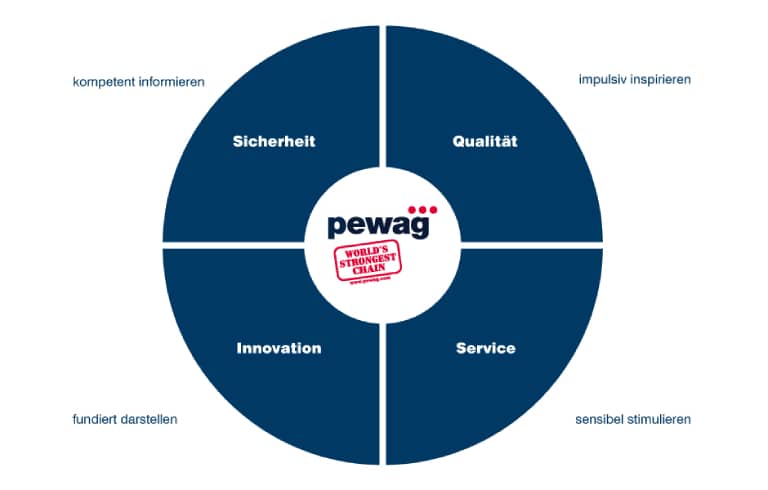
Integration of All Media for a Strong Brand Image
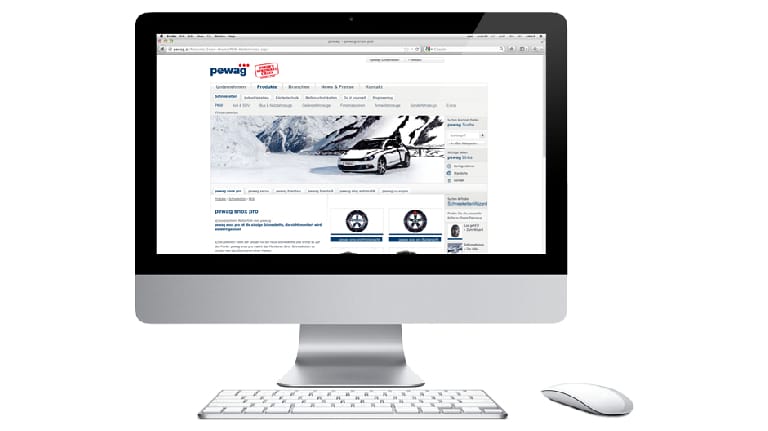
The aim and vision of the owner is to build pewag up to become a strong, international brand. When the project first started, it quickly became apparent the brand identity was fragmented. As a first step, the core of the brand was defined and, based on this definition, clear brand architecture was developed. The brand architecture ensures that all marketing activities strengthen the family brand pewag.
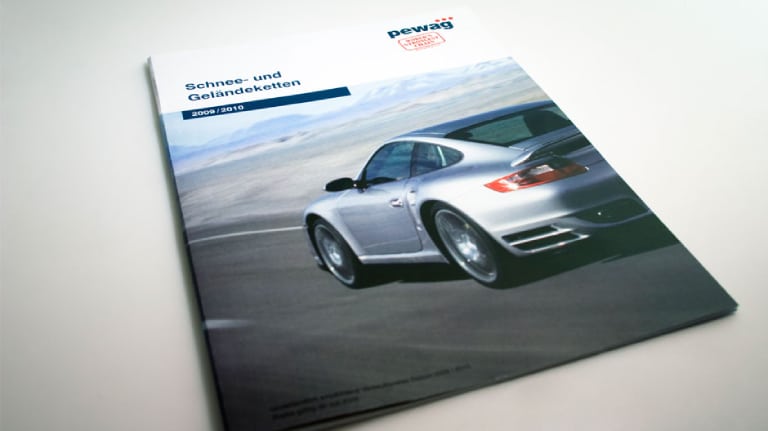
As a result, the brand design has been honed and implemented in the form of a new integrated brand identity across all media. The most important implementation in the field of branding was the launch of a global internet presence based on a modular Content Management System and the development of a company-wide, homogenous set of brochures. Spirit Design was therefore able to strengthen the image of the brand pewag as a leader in innovation and to noticeably improve the efficiency of the brand presence.
pewag snox
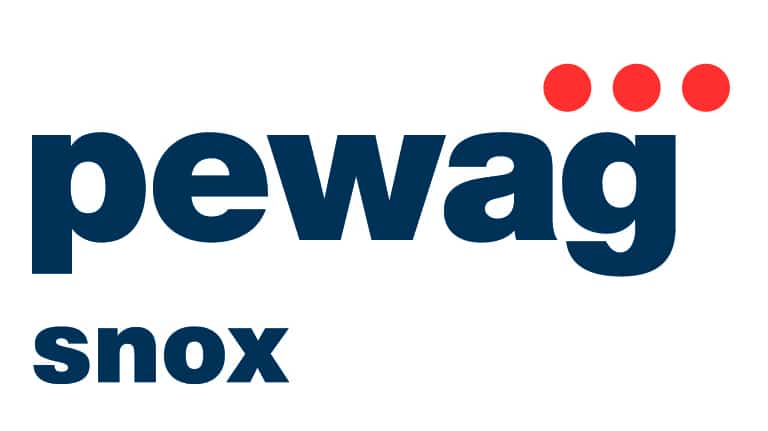
Positive Chain Reaction
The most successful innovation in recent years was the world market innovation pewag Snox. Spirit Design already provided ideas at the very first workshops, which were later evolved by the relevant internal development departments into the groundbreaking product.
Subsequently, Spirit Design complemented the highly successful launch of the self-tensioning snow chain pewag Snox with the development of innovative packaging, as well as the brand and POS appearance of the product brand. The overall project, as well as the innovative packaging, has been awarded several times.
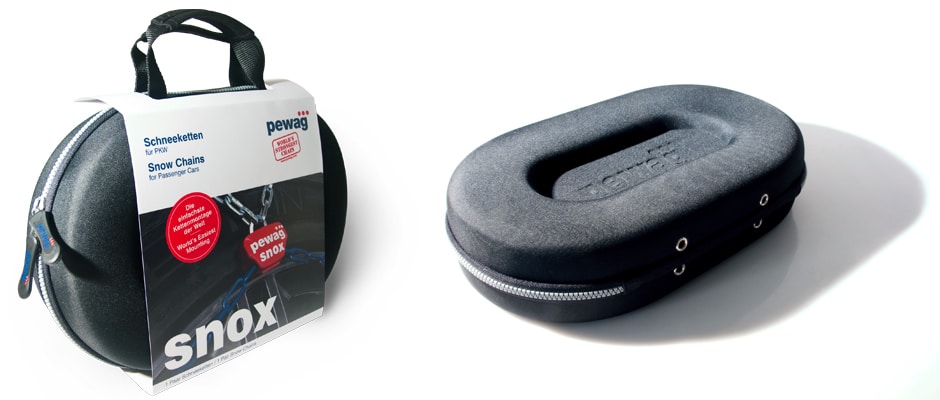
The creative basis for pewag Snox was the design of the packaging in the form of a chain link. This instantly allows (for/enables) the product to differentiate itself from all other commercial snow chains available on the market.
In 2009, the packaging of the pewag Snox won the bronze medal at the prestigious Packaging Design Award ‘Pentawards’ – the entire project was elected the winner of the Consulting Award ‘Constantinus’.
VPL
Small but Smart Innovations
Spirit Design’s approach to Innovation Driven Design, which is applied to pewag, goes far beyond aesthetics – it is primarily a strategic success factor. When it comes to the development of highly technical products, the primary concerns are of course functionality and cost. But even here, designers can develop innovative solutions that meet these requirements. With the help of value analysis tools, innovative, feature-oriented products have been designed and optimised with the help of FEM calculations. Another useful tool was the development of a Visual Product Language, which clearly differentiates the products from their competition.
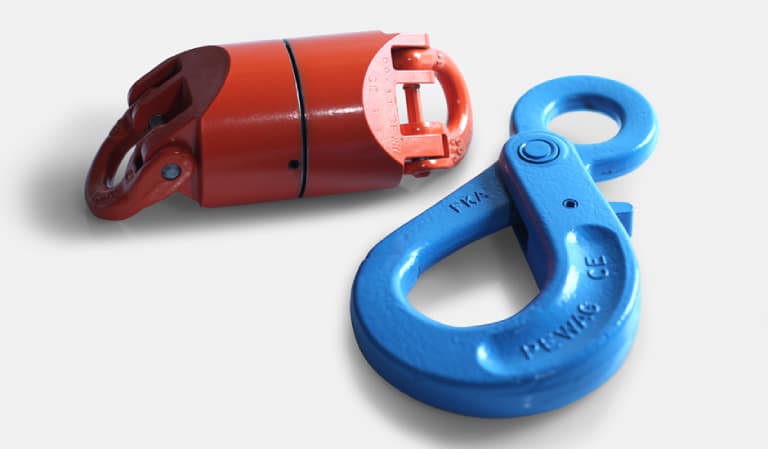
Safety Trailer
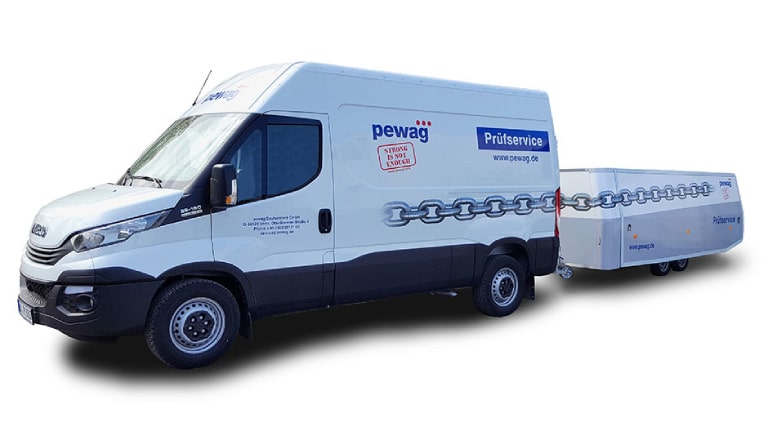
pewag Safety Trailer: It passes all tests
The latest innovation project that Spirit Design has set up together with pewag is a typical application of Industry 4.0, the automatic exchange of information between computers, machines and people. In other words, a safety trailer that thinks for itself, processes and forwards information, and takes care of new maintenance appointments. The premium chain manufacturer pewag wants to use it to further develop its product range and offer new services in the area of testing and direct sales: an innovative overall system, consisting of van, trailer and software, as a mobile and hydraulic-oil-free trailer-based tensile testing station for all products that pewag offers its industrial partners (chains, chain slings and sling components up to 20 tons, but also for other products such as lifting clamps and lifting magnets).
The trailer can be used with an E to B driver’s license and can perform service and maintenance work directly at the customer’s premises, in the halls or on the construction site. Thanks to the smart integration of the peTAG database, data can be evaluated and processed more quickly. Among other things, the integrated IT system informs the customer about the test stand, test data or the next maintenance.
Spirit Design redesigned the functional prototype developed by pewag. This was preceded by strategic analyses and design thinking workshops of the management. Based on a sharpened strategy, the first initial design was then developed. The main focus, in addition to design and improved functionality, was on weight savings, which could be achieved through a narrower layout and lower body height.
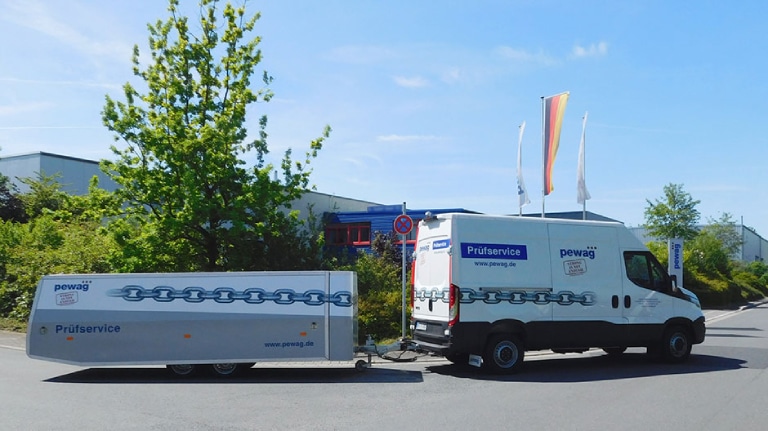
The gullwing doors on the side can be opened upwards and also provide weather protection for the workers. Spirit Design has positioned the testing machine closer to the center axle, which improves driving performance. The shape of the test trailer is reminiscent of two interlocking chain links. In order to optimally integrate into the typical pewag brand world, the chain links are also used as a graphic element in the branding.
Design and branding were homogeneously coordinated and are thus stronger in their overall appearance. With the pewag Safety Trailer, Spirit Design has created a testing device that optimally meets the requirements of all users (management, sales, service employees, IT technicians) with optimal ergonomics, Design2Cost commitment and a holistic approach based on Industry 4.0.
